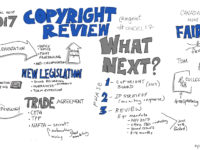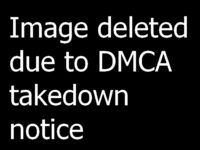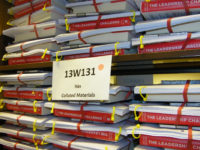With the Industry committee’s copyright review winding down, I appeared yesterday before the committee to discuss the state of Canadian copyright. The wide ranging two hour discussion focused on everything from fair dealing to crown copyright to concerns that publishers don’t fairly compensate authors for their digital licensing revenues. My opening statement placed the spotlight on five issues: educational copying, site blocking, the so-called value gap, the impact of the copyright provisions of the CUSMA, and potential reforms in support of Canada’s innovation strategy. An audio version and transcript of the opening statement is posted below.
Post Tagged with: "indu"
“Why Are You Recommending Notice and Takedown?”: The Canadian Bar Association’s Puzzling Position at the Copyright Review
The Canadian Bar Association appeared before the Standing Committee on Industry, Science and Technology earlier this week as part of the nearly-concluded copyright review. The CBA submitted an odd brief that focused on a mix of issues, including anti-counterfeiting, notice-and-notice, and artists’ resale rights. The notice-and-notice comments captured the attention of at least one MP, who was left puzzled by the position.
Misleading on Fair Dealing, Part 3: Data Shows Books Are Rapidly Declining as Part of Coursepack Materials
The misleading claims on fair dealing extend beyond the impact of the 2012 reforms and the wildly exaggerated claim of 600 million uncompensated copies each year. Given that educational institutions have increased their licensing spending since 2012, Access Copyright has sought to downplay the investment at the copyright review by arguing that site licensing is primarily focused on access to journals while copying for coursepacks predominantly involves excerpts from books. The implication of the Access Copyright argument is that book copying remains as relevant as ever and that site licensing does not cover that form of copying. These arguments are misleading, however, since the data suggests that book copying is rapidly declining as part of coursepacks, coursepacks themselves represent a small percentage of course materials, and books are in any event an increasingly large part of university site licensing. Posts over the next three days will address each of these issues.
Misleading on Fair Dealing, Part 2: Why Access Copyright’s Claim of 600 Million Uncompensated Copies Doesn’t Add Up
My series on how the copyright review has been misled on fair dealing continues with one of Access Copyright’s most attention-getting claims: that each year “600 million pages of copyright-protected content is being copied for free each year by the education sector” (Part 1 on inconsistent claims on effect of 2012 reforms). The 600 million page figure has attracted widespread coverage, regularly cited by Access Copyright supporters (Association of Canadian Publishers, Writers’ Union of Canada) and noted by Members of Parliament. However, a closer examination reveals that the number is the result of outdated guesswork using decades-old data and deeply suspect assumptions.
Misleading on Fair Dealing, Part 1: Access Copyright’s Inconsistent Claims on the Legal Effect of the 2012 Fair Dealing Reforms
Fair dealing has unsurprisingly emerged as one of the dominant topics of the ongoing Canadian copyright review. While educational institutions maintain that spending on content has increased since the 2012 reforms that added education to the list of fair dealing purposes, Access Copyright and the publishing community argue that licensing revenues have declined. Starting today, I’ll be posting a series on fair dealing that unpack many of the issues and demonstrate why House of Commons committees studying the issue may have been misled by exaggerated and inaccurate claims.
The series starts with the foundational argument from Access Copyright and its supporters, namely that current educational practices are the result of the 2012 copyright reforms that led to a significant expansion of fair dealing. The implication is that the government broke their compensation system in 2012 and should “fix it” by curtailing educational use of fair dealing. Future posts will explain why licensing has actually increased since 2012, but this post is limited to the oft-heard claim that the 2012 reforms are to “blame” for current educational practices.











